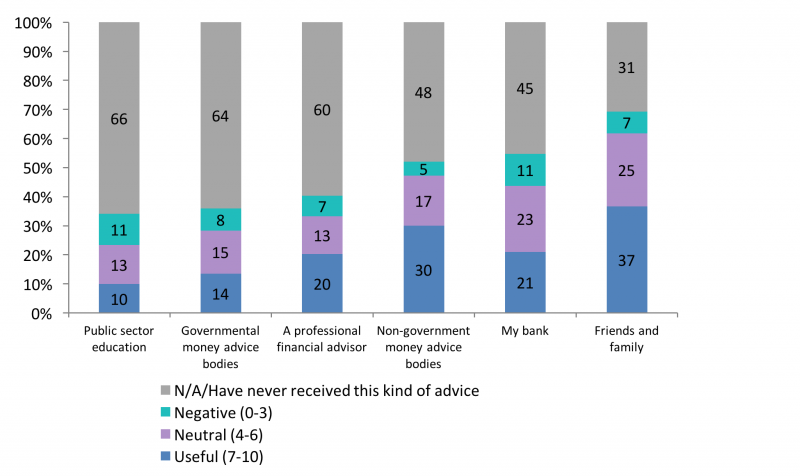Just one in ten (10%) British adults say they have received useful advice about personal finance through their school or college, a new survey of over 2,000 British adults by insolvency and restructuring trade body R3 and ComRes has found.
A similar proportion, 11%, say the advice they received via public education was not useful and two thirds (66%) say they haven’t received any advice about their personal finances at school or college.
With the government having recently announced a consultation on making personal, social, health and economic (PSHE) education compulsory in schools, R3 says there is an opportunity to improve financial education as part of this.
Mike Pavitt, chairman of the Southern Committee of insolvency trade body R3, a former school governor and corporate restructuring and insolvency partner at Paris Smith solicitors, Southampton says:
“Becoming confident and knowledgeable about personal finances is vital, and helps boost people’s resilience in the face of unexpected events which can otherwise lead to financial problems. The government is willing to consider making PSHE education compulsory, which should mean more young people having access to high-quality information on personal finance and should really help improve levels of financial capability.
“While the sex and relationships aspects of PSHE education often attracts the headlines, the ‘E’ in ‘PSHE’ is just as important to young people's future wellbeing.
“Young people in the final years of school are in particular need of thorough, targeted advice on personal finance issues, as many of them are – or soon will be – old enough to apply for credit cards, car finance, and loans. Learning good financial habits including budgeting, saving and using credit products responsibly at an early age will help them to negotiate independent adult life in a savvy and resilient way.”
Public sector education currently has the lowest reach of personal finance advice, with just one third (34%) of those surveyed saying they have received advice in this way. The proportion of adults who have received advice from official governmental money advice bodies is only slightly higher, at 36%. By comparison, over two-thirds (69%) of people said they have received this type of advice from friends and family, and over half (52%) from non-government advice bodies.
Mike Pavitt adds: “There is good government advice on personal finance available to adults, but it’s not always easy for people to access it. The government's plan to launch a new single financial advice body later next year presents a great opportunity to promote and develop this existing good work, and to improve overall financial capability across the country.”
Advice from friends and family is rated as the most helpful source of personal finance advice, with 37% of adults rating it as useful. Non-government money advice bodies, banks and professional financial advisors are next most likely to be rated as useful, at30%, 21% and 20% respectively.
One third (32%) of adults aged 18-24 say they have not received financial education through their school or university; compared with 49% of 25-34 year olds, 62% of 35-44 year olds, and 72% of 45-54 year olds.
Family and friends are the most common sources of financial advice.
The most common source of personal finance advice for British adults is friends and family, with over two-thirds of people (69%) using friends and family as a source of advice on personal finance matters highlighting the lack of advice people receive from specialists.
A surprising proportion of adults – between 45% and 64% – say that they have never received advice from a specialist provider of financial advice such as a bank (45%), professional financial advisor (60%), or governmental money advice body (64%).
Mike Pavitt comments: “While advice from friends and family undoubtedly performs a useful job, speaking to a regulated professional who has the knowledge and experience necessary to give up-to-date advice on personal finance is something that we would strongly recommend. If you had a health query, you’d talk to a specialist; the health of your finances shouldn’t be any less important.”
R3 recommends checking the credentials of anyone presenting themselves as a source of financial advice, and only using the services of regulated professionals.
